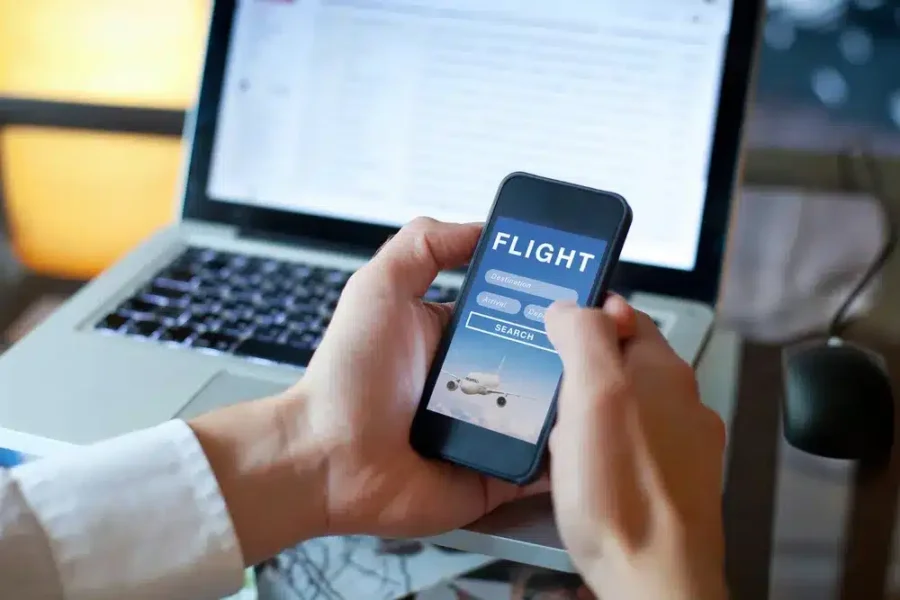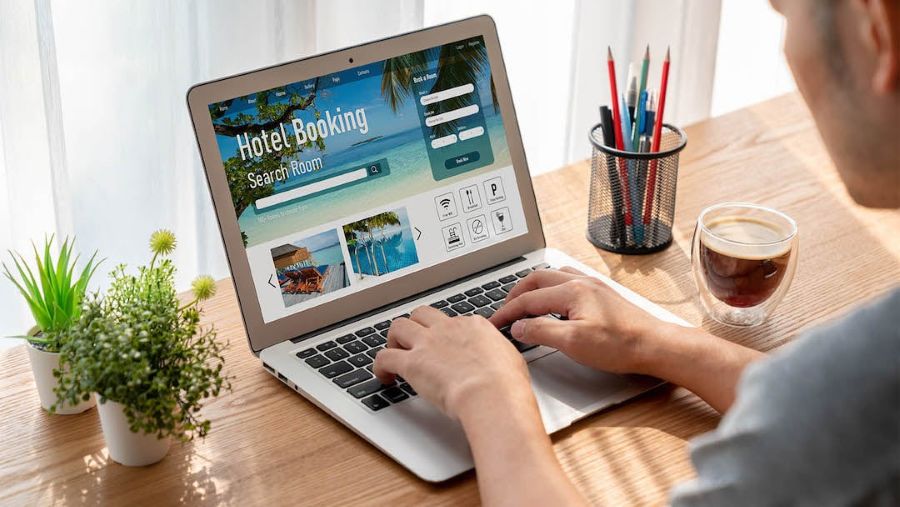
Booking Direct vs Online Travel Agency: 7 Key Differences for Smart Travelers
Booking a trip isn’t just about picking dates and destinations—it’s about figuring out how you want to make it happen. Do you cut right to the chase and book with the airline or hotel, or do you let an online travel agency bundle things up for you? Honestly, the best choice just depends on how much you care about control, flexibility, and perks versus convenience and price.
I’ve done both more times than I can count. Booking direct has bailed me out when flights got canceled, while OTAs have scored me last-minute hotel deals I couldn’t find anywhere else.
Each option has its sweet spot. Knowing when to pick one over the other can change your trip—for better or worse.
Table of Contents
- Key Takeaways
- What Does Booking Direct vs Online Travel Agency Mean?
- Definition of Booking Direct
- Definition of Online Travel Agency (OTA)
- Key Players: Expedia, Booking.com, Priceline, and Orbitz
- Advantages of Booking Direct
- Exclusive Deals and Perks
- Better Customer Service Experience
- Access to Rewards and Room Upgrades
- Benefits of Using Online Travel Agencies
- Convenience and Time Savings
- Price Comparison and Aggregation
- Flexible Cancellation Policies
- Comparing Flights: Booking Direct vs OTA
- Finding the Best Flight Deals
- Earning Airline Miles and Loyalty Points
- Handling Flight Changes and Cancellations
- Hotel Reservations: Direct Booking vs Online Travel Agencies
- Access to Exclusive Hotel Offers
- Eligibility for Loyalty Programs
- Room Selection and Upgrades
- When to Use a Travel Agent or Travel Advisor
- Personalized Travel Planning
- Complex Itineraries and Special Requests
- Support for Unexpected Issues
- Frequently Asked Questions
- What are the hidden costs when using an online travel agency?
- Can booking through a travel agent secure better deals than an OTA?
- What perks might I miss if I don’t book through a travel agent?
- How do travel agents add value to my travel planning experience?
- What should I consider when deciding between a travel agent and an OTA?
- Are there unique advantages to booking flights directly with airlines?
- Book Your Dream Experience
- More Travel Guides
Key Takeaways
- Booking direct usually gives you more flexibility and perks.
- OTAs can offer lower prices and make comparing options a breeze.
- The right call depends on your priorities and trip needs.
What Does Booking Direct vs Online Travel Agency Mean?

When you’re planning a trip, you can either go straight to the airline, hotel, or rental car company, or you can go through a middleman. Each route changes how you book, pay, and deal with problems if things go sideways.
It often comes down to how much control you want, what perks you’re after, and how much you value convenience.
Definition of Booking Direct
Booking direct just means you make your reservation straight with the company—no middleman. That could be an airline’s website, a hotel’s reservation desk, or a car rental company’s app.
You skip any third-party involvement.
This usually means you get more flexibility to change or cancel plans. If your flight gets delayed, you can call the airline directly instead of waiting on hold with some third-party call center.
Hotels love direct guests and often give them better room assignments or little perks like free Wi-Fi. And if you’re in a loyalty program, your stay or flight will almost always count toward points or elite status.
Some providers throw in “best rate guarantees.” If you spot a lower price elsewhere, they’ll match it. You still book direct, but you don’t pay more.
Definition of Online Travel Agency (OTA)
An online travel agency, or OTA, is a website or app where you can search and book flights, hotels, rental cars, and sometimes vacation packages all in one go. Think Booking.com, Expedia, Priceline—those sorts of sites.
OTAs pull prices from tons of providers, so you can compare options fast. That’s a lifesaver if you’re flexible about where you stay or which airline you fly.
They sometimes offer cheaper rates, especially for last-minute hotel stays. Some OTAs have their own rewards programs, but honestly, those perks usually don’t stack with the airline or hotel’s loyalty benefits.
The trade-off? Changes or cancellations can get complicated. You’ll need to go through the OTA’s customer service, not the airline or hotel.
Key Players: Expedia, Booking.com, Priceline, and Orbitz
Expedia is one of the biggest OTAs out there. They offer flights, hotels, car rentals, cruises, and vacation packages. You can check prices and book directly through Expedia.
Booking.com leans hard into accommodations, from hotels to vacation rentals. They often show free cancellation options and a wide variety of properties.
Priceline is famous for “Express Deals” and “Name Your Price,” which can get you deep discounts if you don’t mind a little mystery.
Orbitz works a lot like Expedia but has its loyalty program, Orbitz Rewards, where you earn “Orbucks” to use on hotel bookings.
While all four offer similar stuff, each one has its twist—special discounts, unique loyalty perks, or booking features you won’t see everywhere.
See Related: Trip.com Review: The Ultimate 2025 Guide to This Global Booking Platform
Advantages of Booking Direct

Booking directly with a hotel or airline puts you in control. You deal with fewer restrictions, get faster help when things go wrong, and you’re more likely to snag those little extras that make travel a bit more comfortable.
You also get to manage your reservation details yourself, which can save you a lot of stress.
Exclusive Deals and Perks
Hotels and airlines prefer it when you book straight with them—they don’t have to pay commission to third-party sites. That’s why they often throw in exclusive discounts or perks you just won’t see anywhere else.
You might get free breakfast, parking, or Wi-Fi just for booking on their site. Airlines sometimes toss in bonus miles or cut fees for seat selection when you buy directly.
Some hotels run “best rate guarantees.” If you find a lower price somewhere else, they’ll match it—sometimes they’ll even sweeten the deal. Just make sure the room type and terms match exactly. It’s easy to miss a detail here.
I’ve seen boutique hotels offer seasonal packages with stuff like late checkout or a welcome drink, but only if you book direct. OTAs rarely show these extras.
Better Customer Service Experience
Booking direct means you skip the middleman. If your flight gets delayed or your hotel needs to change your room, you can talk straight to the provider.
That’s huge when you’re standing in an airport at midnight trying to get rebooked. The airline’s staff usually has more power to help you than an OTA rep.
Hotels are more flexible with direct bookings too. Need to shift your dates? They’re way more likely to waive change fees or offer a credit. With an OTA, you’re usually stuck with their rules, which can be stricter and slower.
I’ve even had a hotel upgrade me on the spot after a booking mix-up—something that would’ve been a nightmare if I’d gone through a third party.
Access to Rewards and Room Upgrades
Booking directly is usually the only way to earn loyalty points for hotels. Those points can add up to free nights, elite status, or nice extras like free breakfast and late checkout.
Airlines generally give you miles no matter how you book, but some status perks—like complimentary upgrades—are just easier to grab if you booked direct.
Hotels love to give better rooms to direct guests. You’re less likely to get stuck next to the elevator and more likely to score a higher floor or a better view.
If you already have elite status, booking direct makes sure you get your benefits. Many chains won’t honor status perks if you booked through an OTA. Even if you don’t have status, being a direct guest sometimes bumps you up for upgrades when the hotel isn’t full.
Benefits of Using Online Travel Agencies

Booking through an OTA gives you access to a huge range of travel options in one spot, plus handy tools to compare prices and find deals.
Many OTAs toss in reward programs or bundled discounts that can save you money and time.
Convenience and Time Savings
With an OTA, you can plan flights, hotels, and even tours without bouncing between a dozen websites. Platforms like Expedia, Orbitz, and KAYAK let you search hundreds of options at once.
Instead of calling airlines or digging through hotel sites, you can filter by price, location, or amenities in seconds. This is super handy for last-minute bookings or multi-city trips.
Some OTAs let you add extras—like airport transfers or local activities—right at checkout. You can lock in your flights, hotel, and a day tour all at once, without opening another tab.
And yeah, you can do all this from your phone while waiting in line for coffee. That’s hard to beat.
Price Comparison and Aggregation
One of the biggest draws of OTAs is seeing rates from tons of providers side-by-side. You can compare airlines for the same route or check hotel prices across several OTAs and the hotel’s site.
This competition can work in your favor. OTAs sometimes drop fares just to snag your booking, especially for flights and hotels with extra rooms.
You can also spot bundled deals—like flight + hotel packages—that cost less than booking each piece separately. Some platforms highlight “price drops” so you know when to pounce.
Even if you end up booking direct, using an OTA first gives you a solid sense of what a fair price.
Flexible Cancellation Policies
Many OTAs now include free 24-hour cancellation on flights, which is a lifesaver if your plans change last minute. Hotels booked through OTAs often have marked cancellation deadlines, so you know exactly how long you have to back out without penalties.
Some sites even offer “book now, pay later” for hotels, letting you lock in a rate without paying until check-in. That can be a game-changer if you’re still figuring out your itinerary.
Always read the fine print, though. OTAs may advertise flexible policies, but the real rules depend on the airline or hotel’s terms. Still, having all the cancellation info in one place can keep you from nasty surprises.
See Related: Gotogate vs Mytrip.com: Surprising Online Travel Secrets to Know Before You Book
Comparing Flights: Booking Direct vs OTA

When you’re looking at flights, it often comes down to price, perks, and how much flexibility you want if things go sideways. Airlines and OTAs both have their quirks, and honestly, the “best” pick can change depending on your travel style.
Finding the Best Flight Deals
If you’re all about saving money, OTAs can sometimes edge out airlines. They run promos or bundle deals that drop fares a bit lower than booking direct. I’ve seen flights listed $50–$100 cheaper through a third-party site compared to the airline’s page.
But those savings aren’t always a sure thing. Airlines sometimes offer flash sales or best price guarantees that match or beat OTAs. Some carriers even release special fares only on their site.
If you’re hunting for the lowest fare, compare both options. Tools like flight comparison sites help you scan multiple airlines and OTAs in one go. Just double-check the fare type—basic economy tickets might look cheap, but come with stricter rules.
Earning Airline Miles and Loyalty Points
Booking direct with an airline almost always gets you full frequent flyer miles and elite status credits. That’s a big deal if you’re chasing upgrades or free flights.
Airlines tend to honor your elite perks—like priority boarding or free seat selection—on direct bookings without any hassle.
With OTAs, it’s kind of a mixed bag. Most airlines still credit miles for OTA bookings, but sometimes at a lower rate. And while your flight benefits usually carry over, you might miss out on special promos or bonus miles that are only for direct purchases.
If you’re loyal to one airline, booking direct just makes more sense. But if you’re not tied to a specific carrier and just want the cheapest seat from A to B, OTAs are still worth a look—especially if you can stack them with credit card rewards or cheap airfare deals.
Handling Flight Changes and Cancellations
This is where things can get dicey. If you book with an OTA and your plans change, you’ll usually have to go through their customer service—not the airline’s.
That can mean longer hold times, extra fees, or more back-and-forth if your flight gets disrupted.
Airlines generally give you more flexibility when you’ve booked directly. Many now allow free changes on most fares, and refunds or credits get processed faster. If there’s a weather delay or cancellation, airline staff can rebook you on the spot—something they might not do if your ticket came through a third party.
If your travel is time-sensitive or involves tight connections, booking direct reduces the risk of being stuck between the OTA and the airline. But if you don’t mind a little extra legwork, the savings from an OTA can still be worth it.
Hotel Reservations: Direct Booking vs Online Travel Agencies

Booking a hotel isn’t just about clicking the cheapest rate. The way you reserve can totally change your price, perks, and even which room you end up in. Sometimes, honestly, the lowest sticker price is a mirage when you factor in benefits like loyalty points, upgrades, or the freedom to change your plans.
Access to Exclusive Hotel Offers
Hotels love to reward guests who book direct. You’ll spot members-only deals on their sites—stuff that just doesn’t show up on Expedia or Booking.com. I’m talking 5–15% off, free breakfast, or those annoying resort fees magically disappearing.
I’ve had hotels hand out late checkout or drink vouchers, just for booking direct. Can’t remember the last time an OTA did that for me.
Some chains keep their flash sales and seasonal promos all to themselves. If you’re flexible, signing up for a hotel’s email list sometimes gets you first dibs on these.
| Booking Method | Common Perks |
|---|---|
| Direct | Member rates, waived fees, freebies |
| OTA | Bundled deals, price comparisons |
Of course, OTAs can bundle flights and hotels for a lower total. If you’re eyeing a package, sometimes the direct route just can’t compete on price.
Eligibility for Loyalty Programs
If you care about racking up points or keeping hotel status, book direct. Most big chains just won’t give you points or elite night credits if you book through an OTA.
I learned it the hard way—booked a Marriott through an OTA, stayed five nights, got nothing. No progress toward free nights, no perks like breakfast or lounge access.
Airlines are a bit more forgiving with OTAs, but hotels? Not so much. If you’re chasing status or want to redeem points, stick to booking direct. Sometimes paying a little more is worth it for those benefits.
Room Selection and Upgrades
Hotels usually give their least desirable rooms to OTA bookings. That might mean a view of the dumpster instead of the pool, or a room right by the elevator.
Book direct, and you can often pick your room type or make special requests—requests that actually get honored. If you’ve got status, upgrades happen way more often.
I once got bumped from a standard queen to a suite, just for booking direct and being friendly at check-in. Try that with an OTA booking and you’ll probably get a polite “sorry, nothing available.”
If you care about your room, booking direct gives you the best shot. For me, it’s not just about the room—sometimes it’s about feeling like the hotel values you, not just your credit card number.
See Related: Couchsurfing Alternatives: Unique Platforms for Safer, Deeper Travel Connections
When to Use a Travel Agent or Travel Advisor

Booking online is easy enough for simple trips. But sometimes, having a travel agent in your corner saves you time, stress, and, surprisingly, money—especially if your plans get complicated or you want something a bit special.
Personalized Travel Planning
If you want more than just a flight and a bed, a travel agent can design something just for you. They’ll ask about your style, budget, and quirks—maybe you hate crowds, or you’d rather stay in a funky guesthouse than a giant chain.
I’ve had agents find tiny, family-run lodges I’d never see on Google. They know which tour operators are solid and which ones flake out. That kind of insider info is gold.
You get someone who can negotiate extras. Think late check‑outs, room upgrades, or private guides—stuff you can’t just click for online. And since many agents have preferred partnerships, sometimes you get perks for free.
Complex Itineraries and Special Requests
Multi-stop trips, cruises with land tours, or journeys with trains, ferries, and flights across borders? That can get messy. A travel advisor can piece it all together so you’re not stuck with a 10-hour layover in the wrong city.
If you’ve got dietary needs, mobility issues, or want to do something weird—like a private cooking class in a remote village—they can make it happen. I once had an agent set up a trip through three national parks with timed entry, guided hikes, and all the transfers. Doing that myself would’ve eaten up weeks.
They also warn you about the fine print. Some rail passes or cruise cabins sell out months ahead. A good advisor will flag that so you don’t miss out.
Support for Unexpected Issues
When things go sideways—flights canceled, hotels overbooked, lost luggage—a travel agent steps in so you’re not stuck on hold at 3 a.m. They’ll rebook you while you sleep or find you a last‑minute hotel when your original one falls through.
I’ve had an advisor reroute me after a storm closed an airport. By the time I landed, I had a new flight, hotel voucher, and dinner plans. Online booking sites just can’t move that fast.
Since they have direct lines to airlines, hotels, and tour operators, agents can get exceptions you’d never score solo. It’s not magic—it’s the relationships they’ve built over the years.
Frequently Asked Questions
When you’re picking how to book your trip, the fine print can matter as much as the price. Fees, perks, and flexibility shift a lot depending on whether you book direct, use an OTA, or work with a travel agent. Small details can make a big difference when plans change or things go sideways.
OTAs may offer a low upfront price, but hidden charges appear later. You’ll see service fees for seat selection or changes, even if the airline doesn’t charge them.
Cancellation and change policies are often stricter. I once paid an OTA “processing fee” that was more than the airline’s fee—never again.
Can booking through a travel agent secure better deals than an OTA?
Sometimes, yeah. Travel agents can tap into industry-only rates or bundle perks you won’t find online. This is especially true for cruises, luxury hotels, or complex itineraries.
I’ve scored free breakfast and late checkout at a Paris hotel, just because my agent had a partnership with the chain. No way you’ll find that on a generic booking site.
What perks might I miss if I don’t book through a travel agent?
You might miss out on upgrades, onboard credits for cruises, or resort credits for hotels. Agents sometimes have access to exclusive promos tied to their agency network.
Even little things—like free airport transfers—can save you time and cash. OTAs rarely toss in those extras.
How do travel agents add value to my travel planning experience?
A good agent doesn’t just book—they troubleshoot. If your flight gets canceled while you’re asleep, they might rebook you before you even wake up.
They also know little details—like which side of the train has the best view in Switzerland, or which hotel rooms avoid nightclub noise in Bangkok.
What should I consider when deciding between a travel agent and an OTA?
Think about how much you want human help versus instant online booking. If your trip is simple and fixed, an OTA’s speed and price might win.
But if you’re juggling lots of flights, hotels, and activities—or want someone in your corner when things go wrong—a travel agent’s support can be worth the extra step.
Are there unique advantages to booking flights directly with airlines?
Absolutely. When you book directly, you typically receive faster assistance if your plans go awry. The airline can change your ticket on the spot since you bought it from them in the first place.
You might notice you get bumped up the list for schedule changes or even upgrades. If you’re chasing miles or elite status, direct bookings make sure every flight you take counts toward those rewards.



